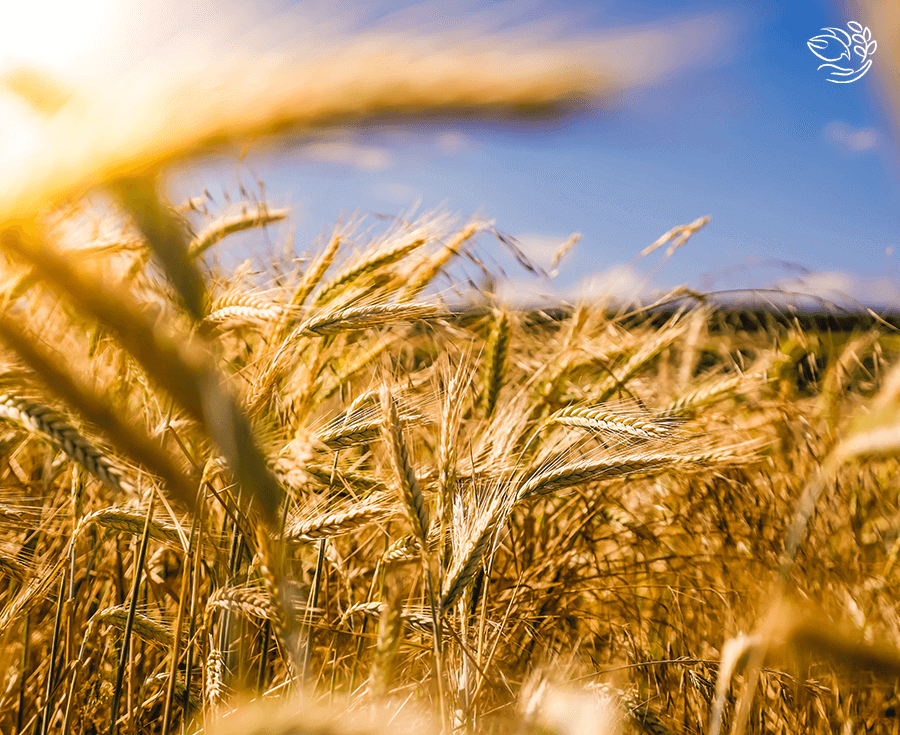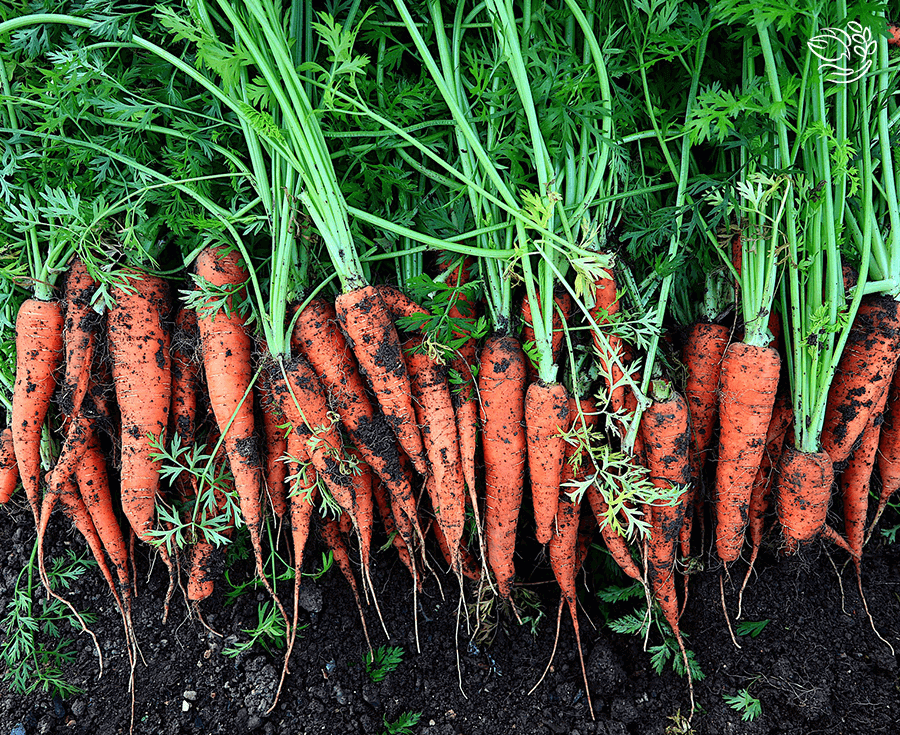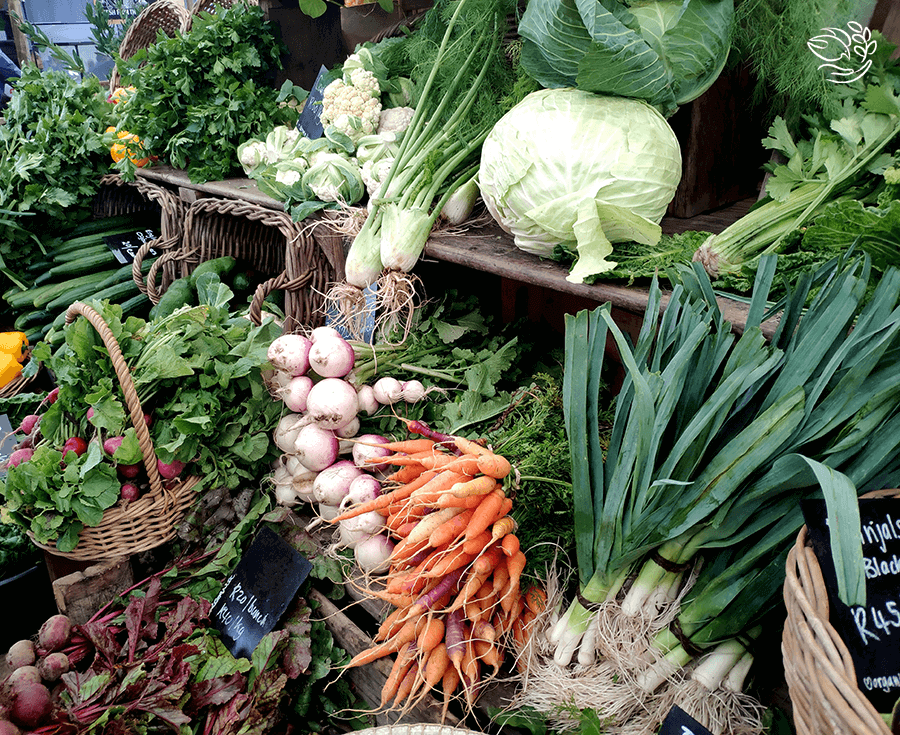The increasing demand for agricultural practices limiting the environmental impact of farming has led to the promotion of a number of concurrent farm management models. At times, sustainable agriculture is confused with organic agriculture. The two concepts are not equivalent, however. It is important to know the differences and practical applications in the agricultural production of both of them.
What are the differences between sustainable and organic agriculture?
One of the three pillars of sustainable agriculture, apart from the social and economic aspects, is the environment protection. What the sustainable and organic agriculture have in common is the focus on the protection of the soil, water and air from degradation and the care for other environmental resources. They are different, however, in terms of the approach towards the means of agricultural production as organic agriculture excludes the use of any chemical plant protection products and so-called “artificial” fertilization.
Sustainable farms, on the other hand, also use natural crops protection and fertilization methods, but, at the same time, they use certain chemical products. In sustainable farming, it is allowed to apply e.g. chemical plant protection products in compliance with the rules of integrated pest management. This means such products are used only to the minimum extent possible – applying the precision agriculture tools – in the quantities relevant to the needs of the soil and plants.

When utilized in reasonable amounts, these products allow for achieving high quality and healthy sustainable agriculture products with the environmental impact significantly reduced. This farming model also enables the consumers to buy products at reasonable prices. Additionally, such practices allow for the production of food at larger scale and for production specialization, which is not possible in the organic agriculture model due to the high production costs.
What is conventional (mass) agriculture?
This agriculture model is focused on short-term profit maximization achieved through a high efficiency of plants and animals and an intensive application of all available means of agricultural production.
The future of agriculture
The climate and environment-related challenges are not the only issues societies face nowadays. According to the available estimations and analyses, the world’s population will reach 10 bn in 2050. Meaning that the food demand will be even greater than today. Due to its lower efficiency, higher costs and limited production scale, the organic farming model cannot offer a real alternative. Similarly, conventional agriculture, considering its high environmental costs, is the production type that gradually becomes less popular. The sustainable agriculture model is a so-called golden mean as it offers reduced environmental impact while maintaining an adequate agricultural production scale, farmers profits and food prices for consumers at reasonable levels.

How to recognize a sustainable farm?
One of the basic tools for farmers and food chain participants to identify the food originating from sustainable farms is certification. It is becoming more and more popular, and, in some cases, necessary for further development of a farm and the sale of agricultural products in the market. The food market is definitely oriented towards the quality of the products and safety of their manufacture. These are aspects that can be confirmed through the agricultural production certification which ensures assessment of the sustainable development as well as the food quality and safety. The standards available in the market also increase the efficiency of the production process and, importantly, the protection of natural resources involved in this process.
Types of certification
At the moment, the most popular certifications confirming the product’s quality and safety and compliance with the sustainable agriculture principles are:
- GLOBALG.A.P.,
- Farm Sustainability Assessment (FSA),
- Integrated Production.
Each of these certifications confirm the appropriate farm and environment management.
GLOBALG.A.P.
GLOBALG.A.P. certification is product-based as the certificate is issued for a specific cultivated plant registered for certification. The audit consists in the assessment of the entire farm. It starts with the on-site visit which is aimed at assessing the places where the plant protection products, fertilizers and machines are stored. Next, the auditor visits the farmland to watch the harvest. The GLOBALG.A.P. certification covers, among others, the elements that enable to assess the production’s impact on the environment. GLOBALG.A.P., in cooperation with the SAI Platform, has created an additional module called FSA. This module allows for additional assessment of social responsibility aspects, the manner of management and financial stability of the farm, which are not covered by the basic GLOBALG.A. P checklist. When a farm decides to conduct the GLOBALG.A.P. certification with the additional FSA module, it obtains two certificates that confirm the compliance with the requirements of the two standards.
FSA (Farm Sustainability Assessment)
The FSA sustainable farm certification is performed based on a list of questions prepared by the SAI Platform. The audit starts with an interview relating to the size of the farm, the cultivated crops and the management manner. Then, such aspects as plan protection products, fertilizers, financial stability, social responsibility and environmental safety are discussed. Visiting the farm and the farmland is an inevitable element of the assessment process. Following the audit, the owner receives information about the level of the farm and aspects that could be improved to attain the goals of sustainable development.
Integrated Production
Integrated Production is the Polish certification system supervised by the Main Inspectorate of Plant Health and Seed Inspection. The integrated production system allows for obtaining the agricultural products of top quality that are safe for people’s health. The products are subject to strict control in terms of the residues of crop protection products and fertilizers. IP takes into consideration the goals of sustainable agriculture such as the agricultural landscape protection or biological diversity. The system is based on carefully selected elements covering the correct anti-erosive crop rotation, agrotechnical solutions, rational application of crop protection products and fertilizing.
Certification of farms is more and more popular in the food production market, as consumers are increasingly interested in both the food safety and the production process’s impact on the environment. The audit by FSA, GLOBALG.A.P. or Integrated Production is a confirmation of the food quality and the care for the environment. In each case, the farm receives information about its current level and the directions for further development.

Moreover, in light of the applicable law, biomass for biofuel purposes is also subject to certification for compliance with the requirements of standards such as ISCC, REDcert, where the standards encompass a high number of criteria for sustainable agriculture and have special versions and modules enabling full certification of sustainable development elements. An example of the Polish certification system approved by the European Commission with respect to demonstrating compliance with sustainable development criteria is the KZR INiG system.
For livestock production, requirements of individual enterprises processing animal products (own standards) prevail, but simultaneously industry associations are developing as effective methodologies of sustainable animal husbandry as possible, which may be exemplified by activities within the Global Roundtable for Sustainable Beef and the European Roundtable for Beef Sustainability. At the same time, there are systems focusing on welfare with increasingly more emphatically stressed elements of sustainable production, such as Animal Welfare Approved and Red Tractor standards, which are a good starting point for implementing the requirements of sustainable agriculture.
How to recognize the food from sustainable farms when shopping?
At the moment, there is no common marking for sustainable farming foods as, for example, in the case of organic food. However, it is important to check the products’ packaging for information about the food originating from sustainable farms. We strongly recommend that food producers mark their products as sustainable so that they can be easily identified by consumers.
The information has been prepared in cooperation with the SGS certification unit.
